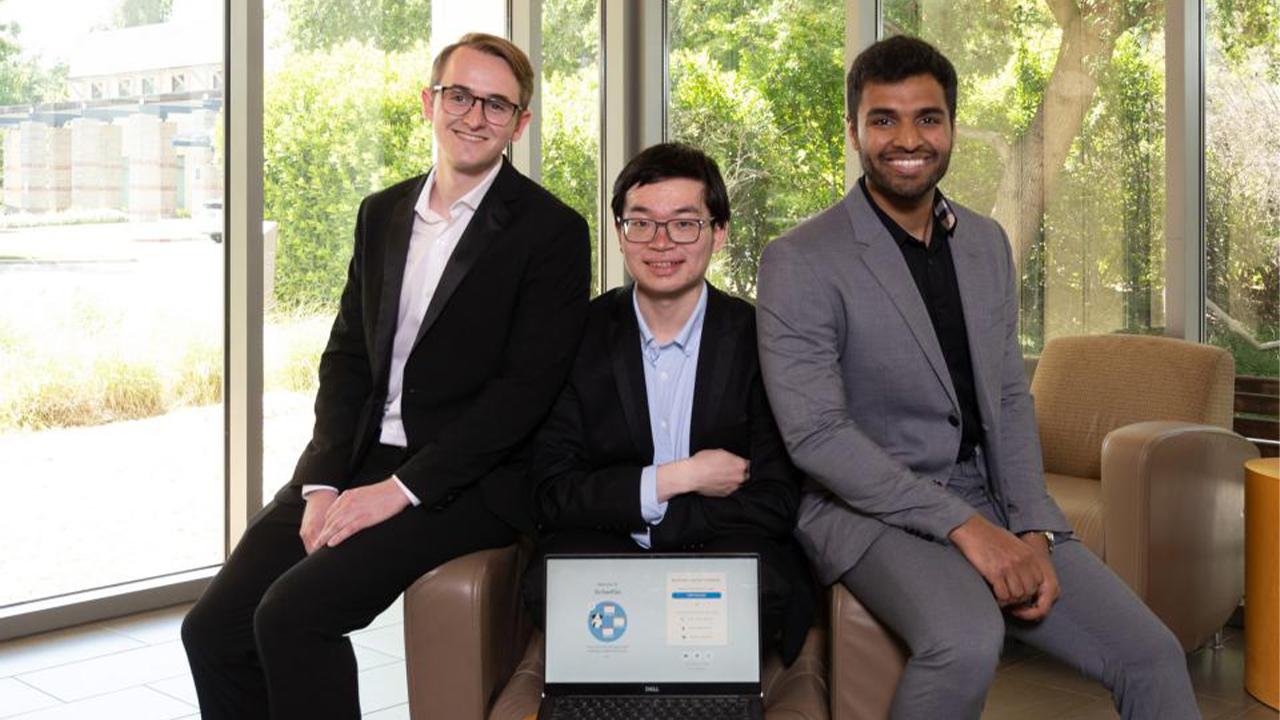
Automated College Degree-Planning Tool Wins Top Prize in Annual UC Davis Business Competition
Device to Improve Post-Harvest Maize Yields in Africa Takes Home 2 Prizes Totaling $20,000
Quick Summary
- Big Bang! competitors vied for $92,000 in prizes
- Each top winner gets two prizes
Read the full article on UC Davis News
A team of two University of California, Davis, MBA students and a senior computer science major received the $20,000 first prize for the best innovation in the 23rd annual Big Bang! Business Competition on Tuesday (May 23).
Davis-based SchedGo’s intuitive platform leverages artificial intelligence and machine learning to create personalized, easy-to-follow degree plans for college students overwhelmed by the seemingly countless number of complex options to graduate on time.
Students at four UC campuses are already using the app, according to the SchedGo team.
Specifically, our goal is to finish our degree-planning system and offer it to 10,000 students at universities across the country by this time next year” — Akshaj Aravind Raghavi, MBA student inventor
The team also won the $10,000 People’s Choice Award, selected by online voting that was open to the public. Between the two prizes, the creators won $30,000.
$92,000 in prizes
The UC Davis Big Bang!, organized by the Mike and Renee Child Institute for Innovation and Entrepreneurship, has been helping entrepreneurs start or grow business ventures for more than two decades through the competition, workshops, mentoring and networking opportunities. This year the Big Bang! was open to teams with a founder or team lead affiliated with a college or university in California. The prizes are funded by corporate, nonprofit and various other sponsors.
The annual awards ceremony celebrated the contestants and announced the winners of $80,000 in cash awards and in-kind prizes valued at $12,000 for innovations in food and agriculture, education, energy/sustainability, health and social enterprise.
Seventeen finalists — out of 52 qualifying teams in this year’s competition — pitched their ventures before six judges in an eight-hour marathon judging session. Judges considered the teams’ integrated strategy, steps toward implementation and market opportunity to determine prize winners.
A ChatGPT-like assistant to smooth the undergraduate journey
SchedGo founder and CEO Henry Yu experienced firsthand the challenges of creating a class schedule each quarter. A natural problem solver, he built himself a tool to make the process less onerous and more efficient.
“I had my lightbulb moment when I realized that most undergrads had similar struggles and often complained about the outdated, unintuitive class search and registration system,” he said.
Yu joined forces with graduate business students Dillon Hill and Akshaj Aravind Raghavi, and SchedGo was born.
The team was inspired by findings from the National Student Clearinghouse Research Center that undergraduate enrollment fell nearly 6% from 2019 to 2021, with first-year enrollment dropping 13% over that period — and by a Bill and Melinda Gates Foundation report noting that a major reason for dropping out is student uncertainty about a degree path.
“SchedGo makes college students’ lives easier by allowing them to focus on their academic growth and personal development. We automate and optimize the class scheduling and degree planning process, helping students save time, reduce stress and graduate on time with a degree that’s most valuable to them,” Raghavi said.
The startup will invest the prize money in product development, marketing and customer acquisition efforts, he said. “Specifically, our goal is to finish our degree planning system and offer it to 10,000 students at universities across the country by this time next year,” Raghavi said.
“In five years, we envision SchedGo as a go-to resource for college students, revolutionizing the way they manage their academic schedules and empowering them to succeed.”